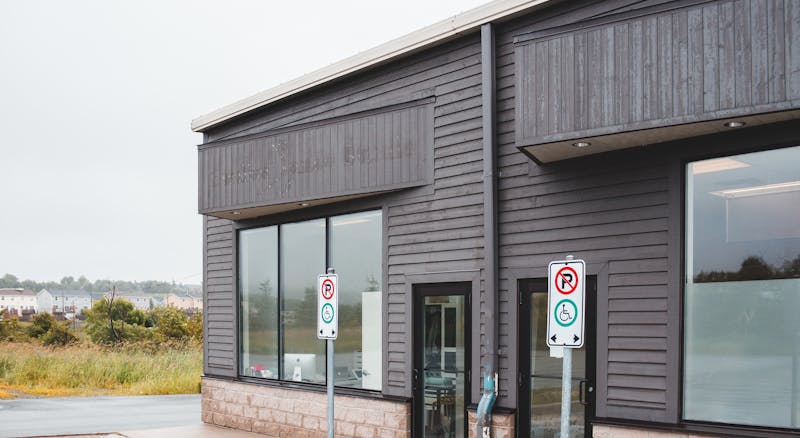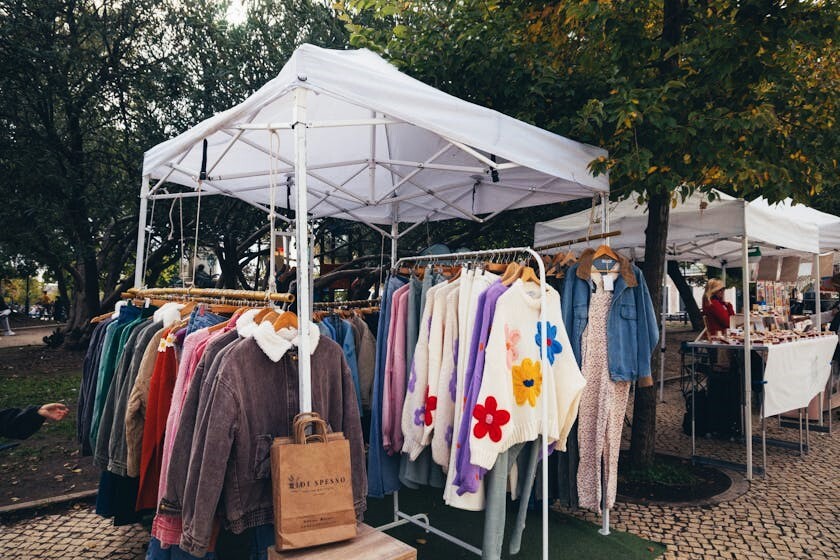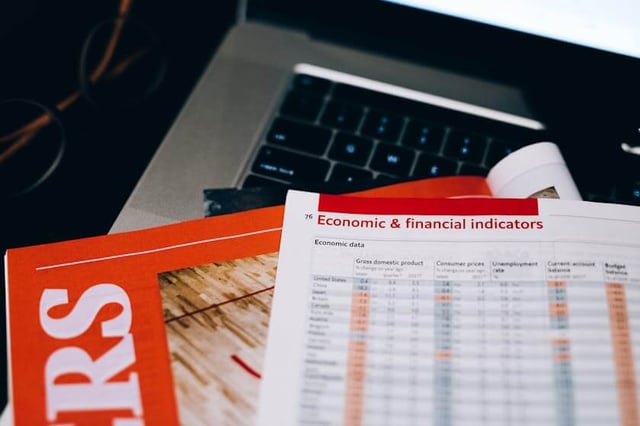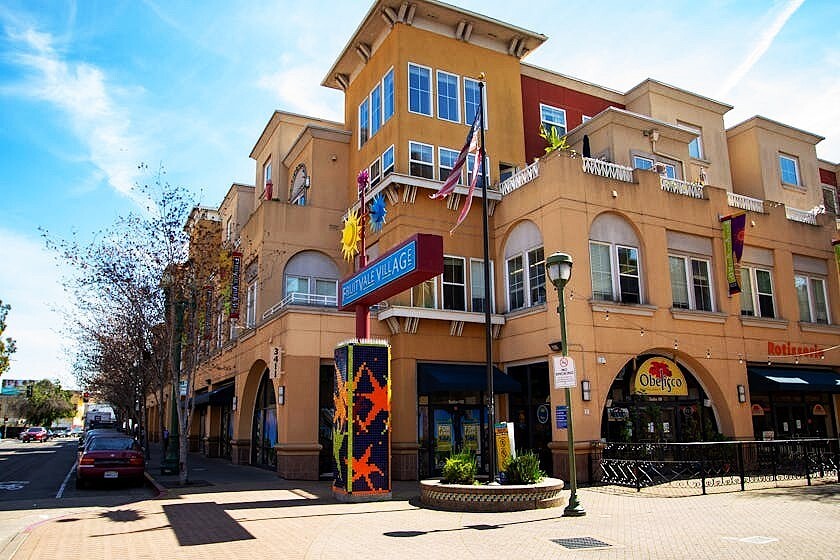
In this comprehensive guide, you’ll discover how investment firms leverage specialty tenants, why this lease type is valuable in shopping centers, and why investors should be educated about specialty leasing.
In this post, we’ll explore what specialty leasing is, how it works, and why it’s an important tool for property owners looking to diversify their tenant mix.
What is Specialty Leasing?
Specialty leasing refers to short-term lease agreements with tenants, typically for less than a year. These tenants are often local or regional businesses, unlike national brands like TJ Maxx or Lululemon. Specialty leasing offers flexibility for the property owner and the tenant, creating opportunities for pop-up stores, seasonal vendors, and even special events like carnivals and festivals.
Specialty leasing is retail's version of "try before you buy." Landowners can quickly transform a quiet corner into a bustling hotspot using pop-up shops, seasonal stores, kiosks, and food trucks.
Specialty leasing differs from the typical leases offered by big-name brands, which can last anywhere from 5 to 10 years. Instead, specialty leasing involves shorter agreements (typically under 12 months) with unique, local businesses. This approach helps create a lively retail scene that can quickly adapt to what shoppers want and the latest trends, making it a refreshing place to visit.
The key characteristics of a specialty lease include:
- Flexible Terms: Agreements ranging from weeks to months
- Diverse Tenant Mix: Local entrepreneurs, seasonal businesses, and pop-up concepts
- Adaptable Spaces: from kiosks to temporary storefronts to event spaces
- Variable Revenue Models: Including percentage rent and short-term fixed rates
In today's volatile retail landscape, mastering specialty leasing is an industry must for all potential investors.
The Benefits of Specialty Leasing
Specialty leasing offers several advantages to property owners, tenants, and the overall shopping experience.
1. Flexibility and Adaptability
Smart investors know that diversification is key in today's retail environment. With specialty leasing, landlords spread risk across 20-30 rotating tenants instead of relying on 1-2 anchor stores. This handy approach allows landlords to pivot quickly in response to changing market conditions, test new concepts with minimal capital, and maintain built-in contingency plans for every space.
This is particularly useful for properties undergoing renovations or waiting for long-term tenants to sign leases. On the other hand, tenants can test the waters before committing to a longer-term lease, ideal for seasonal businesses or pop-up concepts.
For example, a local bakery might lease a space for three months during the holiday season to take advantage of increased foot traffic. Or, a new fashion brand might open a pop-up store for six months to build awareness and gauge demand.
2. Local Flavor and Diversity
Specialty leasing helps diversify the tenant mix by bringing in local businesses and unique, temporary vendors. These tenants can provide something different from the national chains that dominate many malls and shopping centers, enhancing the shopping experience for customers by offering them more variety.
Adding local and regional businesses to the mix also supports the community and creates a more personalized shopping environment. Consumers are increasingly drawn to shopping centers that offer unique, authentic experiences, and specialty leasing can help achieve that.
By diversifying their tenant mix with specialty leasing, property owners can infuse their shopping centers with unique, community-driven energy. Instead of cookie-cutter national brands, customers will discover local boutiques, artisanal vendors, and experiential pop-ups, creating a more engaging, personalized shopping experience that keeps them coming back.
3. Short-Term Flexibility
Don't let the short-term nature of specialty leasing fool you. These agreements pack a powerful financial punch for property owners and tenants. This flexible approach revolutionizes how retail spaces generate value in today's dynamic retail landscape.
Although specialty leasing agreements are typically short-term, they can be profitable for both tenants and property owners. For the property owner, renting out vacant spaces, especially during peak shopping hours, can significantly boost revenue. Tenants benefit from exposure in a high-traffic area without committing to the costs and risks associated with a long-term lease.
4. Event Leasing
Specialty leasing also opens the door to event-based features that can breathe new life into underutilized spaces. These temporary experiences generate rental income and enhance the overall shopping experience.
For example, an empty parking lot could host a weekend farmers' market that attracts locals craving fresh produce and artisanal goods. That unused courtyard could be perfect for a monthly local artist showcase where craftspeople from the area draw crowds eager to buy something homemade and one-of-a-kind. These and similar events create buzz, build community connections, and give people compelling reasons to choose your shopping center over others.
Managing Specialty Leasing
Successful specialty leasing programs require a dedicated team of experts who can navigate the unique challenges and capitalize on opportunities. Many shopping center landlords employ specialized leasing managers who work closely with their permanent leasing counterparts to identify, secure, and manage short-term tenants and events.
For example, a pop-up store might be so successful that the business owner decides to transition into a longer-term lease. In this case, the specialty leasing team would pass the tenant to the permanent leasing team to handle the new lease agreement.
What Specialty Leasing Means for Investors
Today's retail property investors must understand specialty leasing, as it is a key indicator of how well their investment will perform. Think of it as a forecast that helps you see how likely a specific property, landlord, or management company will succeed in the long run.
Strong specialty leasing programs can protect and boost returns by keeping revenue flowing, even when long-term tenants leave. It's also a reliable way to gauge management quality. Firms that excel at specialty leasing typically incorporate market savvy, strong local connections, and emphasize the ability to adapt quickly to retail trends.
These skills directly impact property value through higher foot traffic, diversified revenue streams, and better occupancy rates. When evaluating an investment firm, its specialty leasing capabilities can reveal how effectively it will manage your investment in an increasingly challenging retail landscape.
The Flexible Future of Specialty Leasing in Retail
Specialty leasing provides investors and property owners with a powerful opportunity to enhance their asset value by creating vibrant retail environments. By effectively understanding and implementing strategic specialty leasing practices, stakeholders can decisively position their properties for success in the dynamic retail landscape.
Specialty leasing creates a powerful feedback loop that benefits the entire property when executed properly. Short-term tenants drive increased foot traffic, which benefits both permanent and temporary tenants. Successful pop-ups often convert to long-term leases, while the property's enhanced vitality attracts more quality tenants.
The result? A dynamic retail environment that keeps consumers coming back while maximizing returns for both property owners and tenants.
Remember: we live in a world where retail success demands agility and innovation. Specialty leasing offers flexibility and profitability. Now that you understand the power of specialty leasing, use this knowledge to evaluate investment firms you are considering working with. The better a firm handles specialty leasing operations, the more effectively the organization will be able to manage your investment strategically and profitably.
Topics:




























